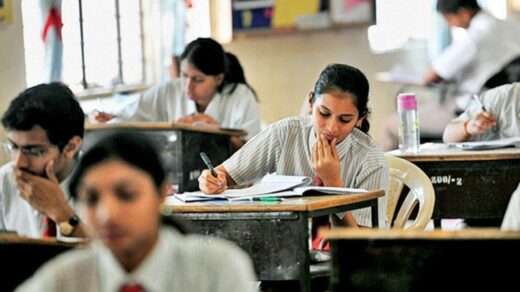New Delhi: The BJP’s massive win in the Delhi civic elections today is the result of a strategy prepared with surgical precision and on the scale of a state election. The party needed to re-establish control in the national capital after winning only three seats in the Delhi assembly elections two years ago, with Chief Minister Arvind Kejriwal’s Aam Aadmi Party sweeping the other 67. The loss to AAP had come only months after the BJP had won all seven parliament seats in Delhi in a Modi wave in the 2014 national election. For the MCD election this year the party went right back to a campaign built around the popularity of PM Modi. “It’s a victory of PM’s policies and Amit Shah’s planning,” said the BJP’s Delhi chief Manoj Tiwari
Having dominated the Municipal Corporation of Delhi (MCD) for a decade, the BJP sought to eliminate any chance of an anti-incumbency sentiment by sacking almost all sitting councilors. It fielded new faces in 267 of the 272 wards in the three municipalities for which elections were held. Party chief Amit Shah made it clear that no family members of the sitting councilors would be fielded either. The BJP also fielded only candidates who belonged to the area in every ward.
The top leadership supervised every part of the election, with Mr Shah holding multiple meetings last month to lay down stringent guidelines.
A core team that included union ministers like Nirmala Sitharaman, Jitendra Singh, Sanjeev Balyan and Vijay Goel was set up to oversee preps for the MCD elections.
Senior ministers like Rajnath Singh, Venkaiah Naidu, Uma Bharti and Smriti Irani were roped in to campaign. Many senior leaders involved in the preps for the MCD elections were asked to stay back in Delhi and not attend the BJP’s national executive meeting in Odisha’s Bhubaneshwar earlier this month. At that key meeting to plan for the future, the MCD elections found mention on a hoarding, so important was it for the party.
Top Delhi Congress leaders like Arvinder Singh Lovely and Barkha Shukla Singh, disgruntled with their party, were inducted by the BJP only days before the MCD elections, denting the rival party, which had hoped to revive itself in Delhi.
To drown the criticism of rival parties on issues like poor sanitation and unauthorised colonies in Delhi, the BJP built another Modi wave with a campaign blitz on radio and the internet promising to build “the Delhi that PM Modi has dreamt of.”
The BJP saw Arvind Kejriwal as the man to beat and focused its attack on him, reminding voters of the election promises he has failed to keep like free Wi-Fi in the capital and installing CCTVs for a safer Delhi.
In their campaign, BJP leaders talked about the party’s landslide wins in Uttar Pradesh and Uttarakhand and appealed to win and appealed to the significant number of Pooravanchalis living in Delhi to vote as their families had done back home. Parts of northern and eastern UP make up the Poorvanchal region.











